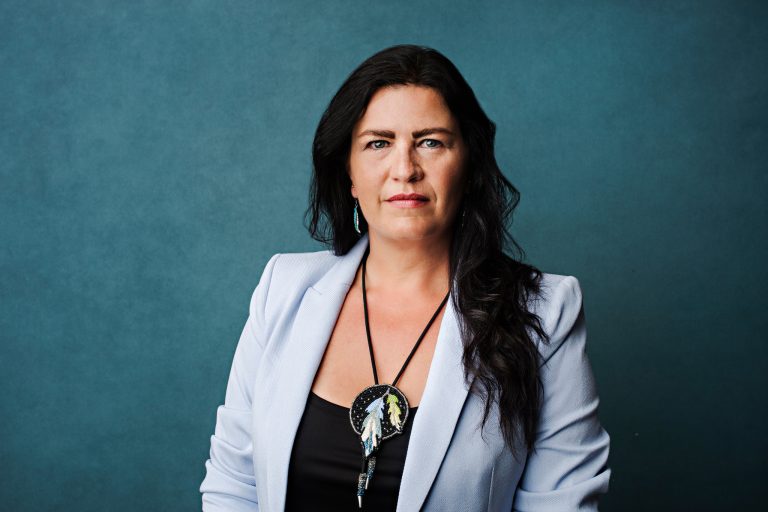Our community benefits from being a university town in numerous ways—there is a constant influx of young minds eager to change the world, new restaurants spring up around the universities and colleges and we also benefit from leaders that are brought in to change the ways those schools lead and educate.
Some of these leaders spend years in the region, while others have a shorter window to make an impact. In Lori Campbell’s case, the opportunity to return to her home province of Saskatchewan was too good to turn down. Last month, Campbell left Waterloo to join the University of Regina as the associate vice president, Indigenous Engagement.
“I had not intended on leaving this soon, by any means,” Campbell said by phone from Regina. “You know, it just sometimes works out that way for folks who are working in senior roles in post secondary. Coming back to Regina is also a great honour. Having the Indigenous and university community want me to come back to take on this inaugural role is a huge honor as well.”
Campbell came to the UW in 2018 to serve as the director of the Indigenous Student Centre at St. Paul’s University College. Before coming to Waterloo, Campbell worked at Saskatchewan Polytechnic and taught a few courses at the University of Regina.
“I was looking for that next step in my career where I could advance Indigenization and decolonization work,” Campbell said. “The centre was situated in St. Paul’s University College, and I really liked the smaller sort of family appeal.”
Campbell said the size difference of the Indigenous student community was smaller in Waterloo than in her past schools. Where institutions in Saskatchewan usually have 10 to16 per cent Indigenous students, UW had less than one per cent with only around 200 of 30,000 students declaring themselves Indigenous.
Even with the smaller indigenous community, Campbell said she felt welcomed.
While the Indigenous community was smaller than in Saskatchewan, Campbell said she found greater diversity in other areas that she didn’t see to the same degree in Saskatchewan.
“The indigenous community was just so…supportive and excited to have me as a guest and to help really move forward some of the things and initiatives that the community here wanted,” Campbell said.
“My partner and I just absolutely loved that there’s people in Waterloo from all over…We got to meet so many people who just really want to see change,” she said.
That drive for change is what Campbell said brought her into the broader community. Campbell said she saw the impact of her work across the community. Beyond increasing the profile of the UW Indigenous Students Centre, Campbell was able to connect with other groups across Waterloo Region.
“When I first got [here], I fielded phone calls from all over the region asking me to come talk to everything from a grade two class to Regional Public Health. These things weren’t university related and what that showed me was just how interested and eager people in the community were to have more Indigenous leadership,” Campbell said.
Engaging with the community also brought an unexpected call to action for Campbell – running in a federal election as the NDP candidate for the Waterloo riding in 2019. Campbell’s road to the campaign started with a call from the national NDP leadership team, a call she said was due to her community engagement. She came in third but was able to increase the vote percentage for the NDP from the 2015 election.
“It was a challenging riding, but part of my job was to try and increase the profile of the federal NDP in the region,” Campbell said.
“I love that I just got to go door knocking. I love going around and meeting people and hearing what they are concerned about. I feel really grateful. I’ve had so many amazing experiences out there.”
Campbell said she hopes to see the momentum of change continue with the Region of Waterloo’s Anti-Racism Advisory Working Group and the City of Kitchener’s hiring of Suzanne Charles Watson as the city’s first Director of Equity, Anti-Racism and Indigenous Initiatives.
“I look forward to seeing at the community level where the region will be with those two new offices being set up,” said Campbell.
“Hopefully whoever comes in to replace me will now have a peer group to work alongside to be able to provide and meet [the] needs of what the community members want.”

